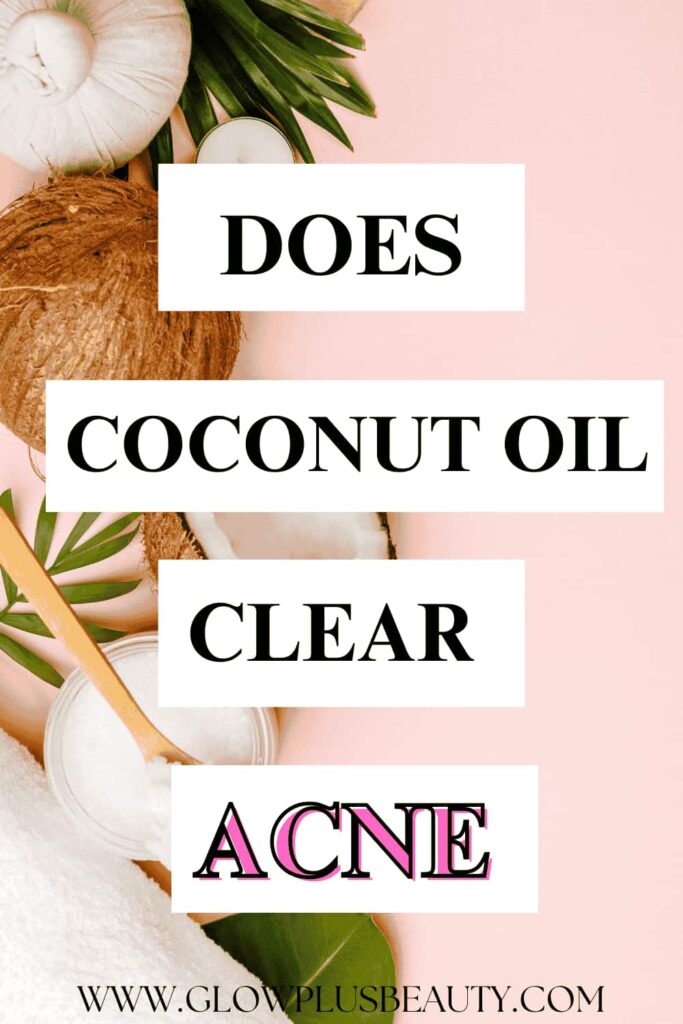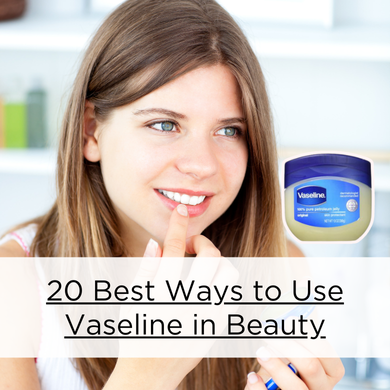Is Coconut Oil Good for Acne?
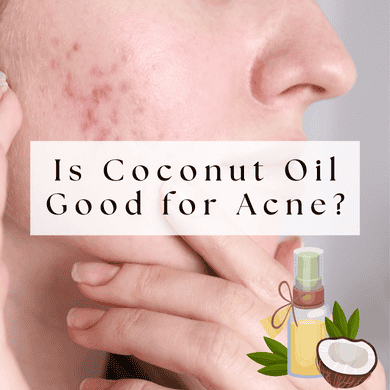
Hey there! Let’s talk about something we all love to hate—acne.
If you’ve ever been frustrated by breakouts (haven’t we all?), you’ve probably heard about coconut oil as a possible remedy.
Some people swear by it for clear, glowing skin, while others claim it’s a recipe for disaster.
Now, I’ll be honest—I love coconut oil.
I use it literally for everything, from head to toe. It’s my go-to for silky hair, soft elbows, and even cooking.
But when it comes to my face?
Nope!
My acne-prone skin just can’t handle it. So, is coconut oil really good for acne, or is it more trouble than it’s worth?
Let’s dig in together, and figure out if Coconut Oil is Good for Acne or not.
Related:
- Is Coconut Oil Good For Your Face? Yes! Here’s Why
- Does Proactiv Remove Acne Scars?
- Does Proactiv Work For Hormonal Acne? Effective or Marketing Hype? What Do Dermatologists say?
- 9 Reasons Why Do My Acne Scars Look Worse Some Days + (How to Fix It)
- Is Shea Butter Comedogenic? 7 Surprising Benefits of Shea Butter For Skin
- Does CeraVe Cause Cancer? +10 Carcinogenic Ingredients to Watch Out For.
What Causes Acne?
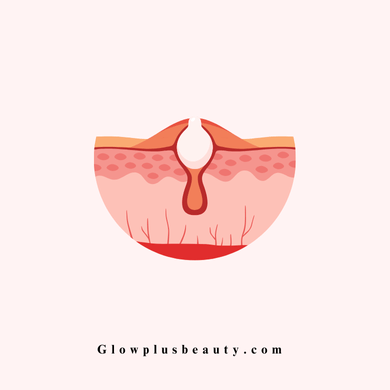
First, let’s remind ourselves why acne happens.
Acne is caused by a combination of factors including excess oil production by sebaceous glands, clogged pores, and the presence of bacteria.
Hormones, diet, genetics, and certain medications can also contribute.
When oil and dead skin cells mix up and clog pores, it creates an environment in the pores where bacteria can grow, which can lead to inflammation and finally pimples.
Composition of coconut oil
It is important to know the coconut oil composition before putting on it the face.
It will help you understand whether the oil is suitable for your skin or not.
Coconut oil is praised for its excellent skin-nourishing properties.
It contains 85% saturated fat and 15% unsaturated fat and includes lauric acid, a rare component found in a few other oils.
These attributes make coconut oil a boon for skin conditions like eczema, dry skin, and various types of allergies.
Its moisturizing and anti-inflammatory qualities can help soothe and heal dry, irritated skin.
The Comedogenic Scale: Coconut Oil’s Dark Side
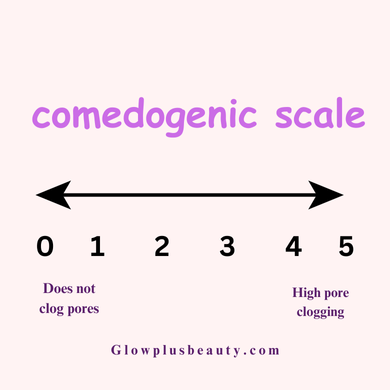
Coconut oil ranks 4 out of 5 on the comedogenic scale (aka the how-likely-is-this-to-clog-your-pores scale).
4 that’s a pretty high mean it’s comedogenic.
So, if your skin is prone to blackheads and breakouts, it will make your acne worse.
Coconut Oil and Acne:
Despite its benefits, coconut oil is not suitable for everyone, especially those with oily and acne-prone skin.
According to modern medical science, acne is primarily caused by the blockage of skin pores, which can result from excess oil production or bacterial infection.
Applying more oil to the skin, particularly a comedogenic one like coconut oil, can exacerbate these issues by clogging pores further.
- Might read:
- 7 Proven Steps to Clear Hyperpigmentation+15 Must-Have Korean Products That Fight Dark Spots.
- Best Korean Skincare for Teenagers: A Step-by-Step Guide for Beginners.
- How to Achieve Glass Skin with These 10 Best Korean Water-Based Cleansers
Is Coconut Oil Good for Acne? Does it Help Clear Up Acne?
The million-dollar question,
In general, if you have oily or acne-prone skin, it’s advisable to avoid using coconut oil on your face.
Instead of coconut oil try salicylic acid, benzoyl peroxide, and retinoid. They are GOLDSTAR for treating acne.
Although coconut oil’s moisturizing properties are excellent for dry or eczema-prone skin, it can worsen acne by clogging pores.
So a big NO NO for oily pimple-prone skin.
If you are still confused and want to know more about coconut oil and acne watch this video by Cassandra Bankson, my fav YouTuber.
Might Read:
- How To Create a Natural DIY Skincare Routine
- Lemon Balm Uses, Benefits, and Recipes
- Niacinamide Vs Salicylic Acid – Which Is Better For Your Skin?
Conclusion: Is Coconut Oil Good for Acne?
So, where do we stand on coconut oil for acne?
The answer is, it depends.
While coconut oil has some amazing antibacterial and moisturizing benefits, it can also clog pores if your skin is oily or acne-prone.
The key is understanding your skin type and using it the right way (or maybe avoiding it altogether).
However, skincare isn’t one-size-fits-all, so trust what your skin is telling you.
If you decide to give coconut oil a try, start small, watch how your skin reacts, and always listen to your body.
I hope you love the post, let me know what you think about it.
